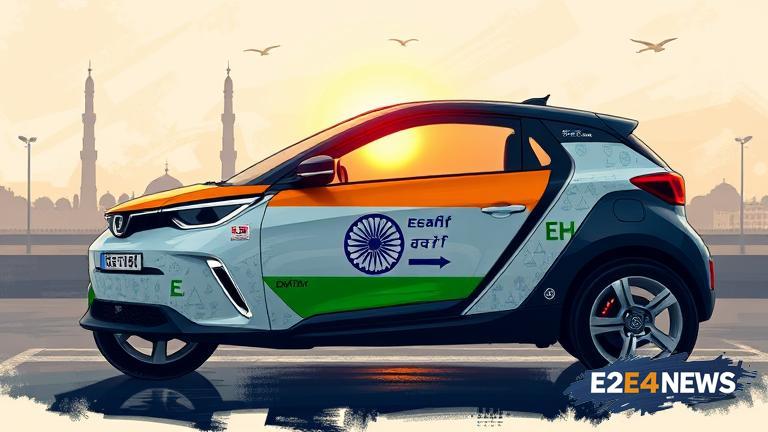The Indian government has announced a comprehensive plan to promote the adoption of electric vehicles (EVs) in the country. The plan includes a range of incentives and initiatives to encourage the use of EVs, including tax exemptions, subsidies, and investment in charging infrastructure. The government aims to have at least 30% of new vehicle sales be electric by 2030. To achieve this goal, the government will provide subsidies to manufacturers to produce EVs, as well as to consumers who purchase them. Additionally, the government will invest in the development of charging infrastructure, including the installation of charging stations along highways and in urban areas. The plan also includes measures to promote the use of EVs in public transportation, such as buses and taxis. The government will provide incentives to state governments to adopt EVs for public transportation, and will also encourage private companies to invest in EV-based transportation services. Furthermore, the government will establish a network of EV charging corridors along major highways, to facilitate long-distance travel by EVs. The plan also includes measures to promote the use of EVs in rural areas, where access to charging infrastructure may be limited. The government will provide subsidies to rural households to purchase EVs, and will also invest in the development of off-grid charging solutions. The Indian automotive industry has welcomed the government’s plan, and several major manufacturers have announced plans to launch new EV models in the coming years. The government’s plan is expected to have a significant impact on the environment, as EVs produce zero tailpipe emissions and can help reduce air pollution in urban areas. The plan is also expected to have economic benefits, as it will create new jobs and stimulate investment in the EV sector. However, some experts have raised concerns about the feasibility of the plan, citing the need for significant investment in charging infrastructure and the potential for disruptions to the existing automotive industry. Despite these challenges, the government remains committed to its goal of promoting the adoption of EVs, and is working to address the concerns of stakeholders and ensure a smooth transition to a more sustainable transportation system. The plan is part of a broader effort by the Indian government to reduce its dependence on fossil fuels and promote the use of renewable energy. The government has set a target of generating 40% of its electricity from non-fossil fuels by 2030, and is investing heavily in the development of solar and wind power. The promotion of EVs is seen as a key part of this effort, as it will help reduce the demand for fossil fuels and promote the use of renewable energy. The Indian government’s plan to promote the adoption of EVs has been praised by environmental groups, who see it as a major step forward in the country’s efforts to reduce its carbon footprint. However, some experts have raised concerns about the potential impact of the plan on the existing automotive industry, and have called for greater support for workers who may be displaced by the transition to EVs. Overall, the Indian government’s plan to promote the adoption of EVs is a significant step forward in the country’s efforts to promote sustainable transportation and reduce its dependence on fossil fuels. With its comprehensive range of incentives and initiatives, the plan has the potential to make a major impact on the environment and the economy, and to establish India as a leader in the global EV market.
